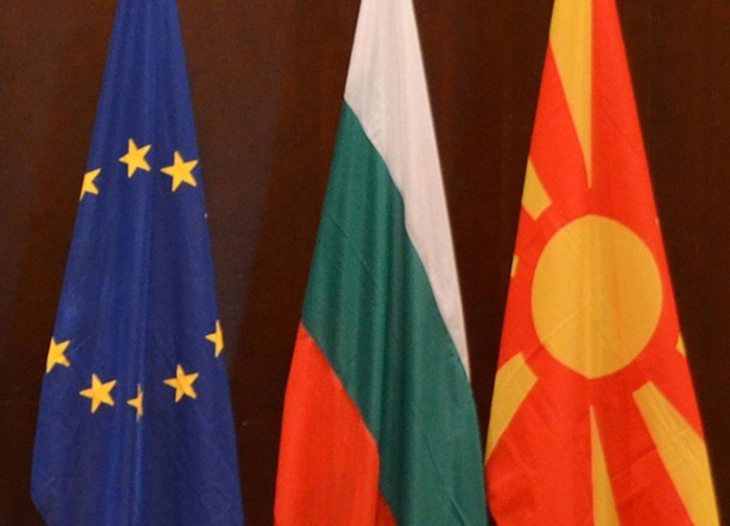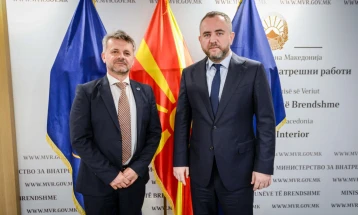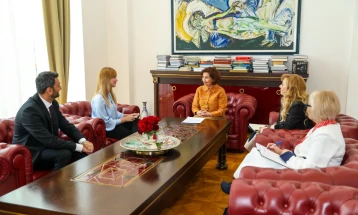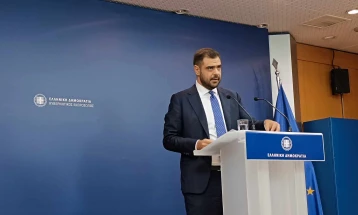Some people don't want good bilateral ties with Bulgaria and EU-integrated region, Kovachevski says
- Both in Bulgaria and North Macedonia, there are individuals and groups, even political parties, financed and encouraged, unfortunately, by third states, who do not want to see the region integrated into the EU; this is clear to everyone by now, Prime Minister Dimitar Kovachevski told MIA in an interview on the sidelines of the Munich Security Conference.

Munich, 19 February 2023 (MIA) — Both in Bulgaria and North Macedonia, there are individuals and groups, even political parties, financed and encouraged, unfortunately, by third states, who do not want to see the region integrated into the EU; this is clear to everyone by now, Prime Minister Dimitar Kovachevski told MIA in an interview on the sidelines of the Munich Security Conference.
“It is now up to both Bulgaria and North Macedonia to continue communication at the level of official institutions to maintain the dignity of both countries’ institutions and citizens,” Prime Minister Kovachevski said.
“If we do this, we will have relations with neighboring Bulgaria just like the ones we have with neighboring Serbia, Greece and Albania.”
He noted that ties with Bulgaria were also economic and strategic.

“Let's not forget that amid the greatest economic and energy crisis, together with the Bulgarian authorities, we managed to increase the capacity of the only interconnector we currently have so we could liberalize the country's gas supply,” the prime minister said.
“These issues are important for our country’s citizens as is bilateral cooperation.
“If we work on issues and projects that bring citizens together, I believe the relations between the two countries will be at a level that befits two neighboring countries that are NATO members and partners and that will be partners in the EU soon, too,” he said.
Asked why he did not meet Bulgarian President Rumen Radev in Munich, Kovachevski said they had not been scheduled to meet there.
“I did not have a meeting with President Radev because it was not on my schedule. That does not mean we will not see each other at some other conference. On Friday, I was in Parliament where the reconstruction of the government is underway, so I could not be here for the opening. On Saturday, other meetings were already scheduled,” he said.
Considering Bulgaria’s early parliamentary elections in April, Kovachevski said he did not want to comment on Bulgarian politicians’ statements given to attract and rally voters.

“When Bulgaria had a political government — Prime Minister [Kiril] Petkov’s government — relations with Bulgaria were raised to an extremely high level. Topics related to the future were being discussed. Our working groups that were discussing infrastructure, European integration, education and culture. As a result of those talks and the atmosphere we created, we managed to reach an agreement with all 27 EU member states and start the negotiations,” the PM said.
He highlighted that, after 17 years of waiting, North Macedonia had started negotiations for membership in the European Union and was not negotiating with Bulgaria but with the EU.
“These negotiations have started, like all other countries’ negotiations, with the screening phase. We have already started the bilateral screening during which our legislation is being reviewed chapter by chapter, sector by sector, portfolio by portfolio.
“The screening process itself is moving toward completion as planned, sometime before the end of this year. Positive signals are coming from Brussels, from our negotiation teams, that the process will end in the best way possible.
“This means that at the end we will receive a report pointing to the exact areas we need to improve, laws to make, and reforms to carry out,” Kovachevski said in the MIA interview. mr/







